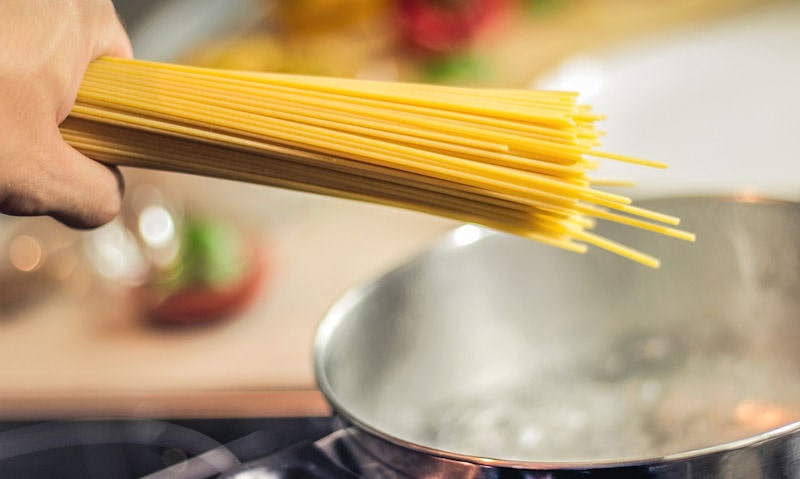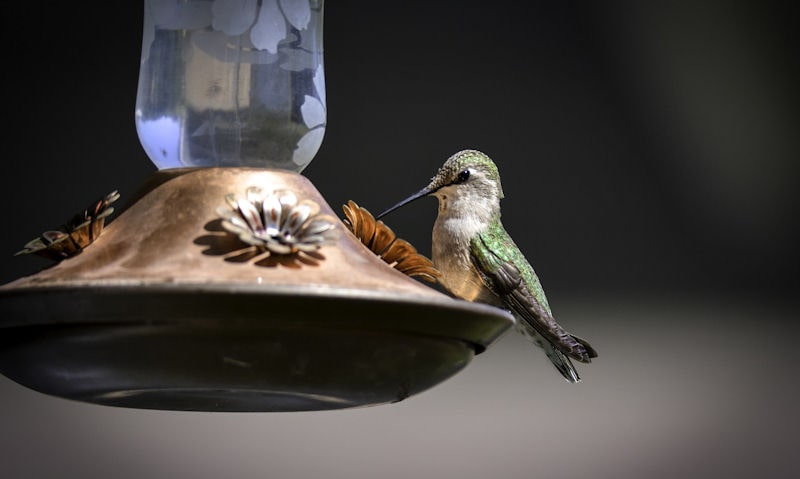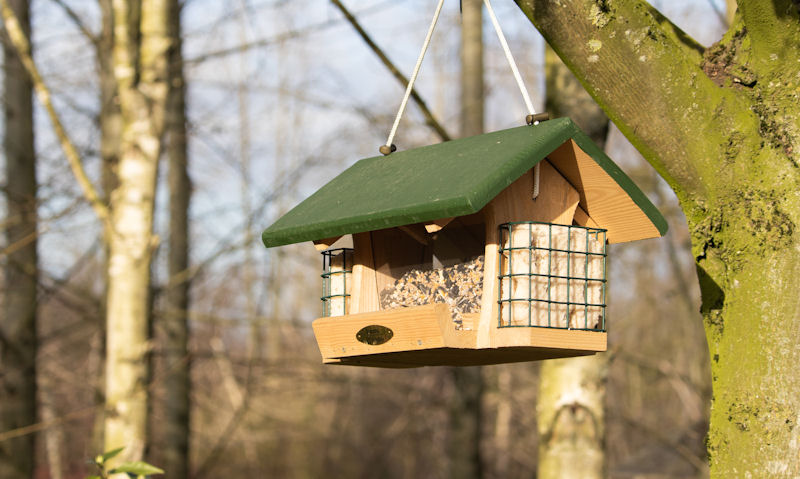Can wild birds eat cooked pasta
Thinking up ways of feeding birds in your backyard with leftovers can lead to pasta, but to do so understand, there is no nutritional value.
You can safely feed wild birds any kind of cooked pasta with any backyard bird willing to eat it in small quantities. Pasta only serves as a filler, such as bread, so you should only offer cooked, cold pasta on a rare occasion. Help birds consume it with ease by cooking it until soft, while allowing pasta to go cold.
Don't be afraid to offer a small amount of cooked, cold pasta to your backyard birds as it can be more a treat than anything of serious nutritional value.
Pasta is merely a filler, so like bread for birds it only serves to fill up their bellies with food that offers no value - so offering birds pasta once in a while shouldn't do no harm.
What you must prioritize is only cooking pasta in unsalted, boiling water.
Salt is dangerous to wild birds as they are unable to metabolise salt. Its therefore a toxic ingredient that must be left out of pasta all together.
With that, never use pasta intended for microwaving or pasta intended for oven baking, as its coated in high in salt pasta sauces.
Go ahead and serve up small amounts of cooked pasta to backyard birds once in a while, but do still prioritize wild bird peanuts, seed mixes and mealworms.
Safe to offer wild birds cooked pasta
It is safe to feed wild birds cooked pasta in your yard, but only do so in small quantities, as it only serves as a filler.
By that I mean pasta can offer little, valuable nutrients to birds so much like feeding bread to backyard birds - pasta as the same effects - which is very little in terms of health benefits.
Pasta can still be fed to birds all the same, but only do so in a balanced way, by not offering only pasta, or pasta as a alternative to more important wild bird food groups, such as protein rich seeds or peanuts.
Simply cook up a small pan of pasta with water only, while allowing pasta to cool for a short while.
And there you have it, you can feed wild birds cold, cooked pasta but only in small quantity, on a rare occasion.
No salted boiling water
Pasta preparation is very important as you could forget about offering a small amount of pasta for backyard birds, thus leading you to enhance the bland pasta flavor.
And herein lies the problem, its a common occurrence for people to add salt to boiling water to season the pasta as it cooks.
However, understand large or small amounts of salt is indeed toxic to wild birds, as they are unable to metabolise salt.
No seasoning of pasta then with salt or pepper for that matter, not even a little.
To cook pasta for yourself as a snack or for dinner time, do use salt to taste only as to avoid adding salt to the entire pan of pasta.
But that is not to say you can't help retain some sort of flavor, or more so quality - by simply retaining the moisture cooked into the pasta.
Retain moisture in cooked pasta
I would suggest cooking your pasta of any kind for the time that is allowed on the cooking instructions.
But I would be sure to go one better by serving up cold, cooked pasta to birds by making sure its a little softer than normal.
Soft, soggy cooked pasta intended for birds is actually what you want; its easy to bite into, even for birds that would otherwise struggle, but its easier to consume for backyard birds over firmly cooked pasta that is hard to break up.
Cooking pasta for birds can retain the moisture needed for an easy to consume meal, but it would need to be offered to birds ASAP.
Pasta offered out in the yard is not going to be eaten up right away, unless of course you add it to a bird feeding platform before the early morning feeding time, so allow time wasted before birds arrive.
Leftover cooked pasta to avoid
Rather than throw away leftover pasta on your dinner plate, it can be a less wasteful solution to offer pasta to backyard wild birds later on.
However, it may not be simple as that as you may now of added salt to the pasta, in which I've mentioned is toxic - but so too can pepper be eaten for birds unintended.
What's more important is the pasta meals we tend to eat will always contain a type of Italian pasta sauce - be it carbonara or tomato and garlic recipes out of jars.
Pasta coated in sauces is not a good idea because again, it contains salt and perhaps other ingredients that can be toxic, leading to birds ill health.
Only serve up cooked, cold pasta to birds in your backyard off your dinner plate if its not come into contact with seasoning or other foods on your plate - just to be safe while protecting the wellbeing of our birds.
Similarly, never offer meat filled ravioli to birds as these fillings are not suitable for most small common bird feeder birds.
No to awkward varieties
Providing you've cooked the pasta intended for wild birds in your backyard as softly as possible, you shouldn't have too many issues feeding them any type of pasta.
Robins, Sparrows or other common backyard birds will have no trouble eating, or attempting to eat overcooked pasta - but do take a little caution regardless.
What that can relate to is indeed not cooking the pasta all that much, so instead of soft, easy to consume pasta - its more firm yet more difficult to eat.
As birds feed off all types of pasta such as shells, ziti, rigatoni, penne and farfalle type pasta - to not cook until soft can cause difficulty for birds to eat.
Light as they are so difficult to keep in one place, to cook them until soft would see the pasta not thrown over the backyard as much, as birds peck away at them to eat.
And while spaghetti pasta can be a choking hazard for people, the shape doesn't apply to birds as they don't gulp it down their throats like people do. Of course that doesn't appear so when mother bird is feeding hatchlings back at the nest.
Serving up in backyard
No bird feeders or dishes of any kind is needed to serve up cooked pasta to birds in your yard, only a clean high surface should be sufficient for this purpose.
To feed Bluebirds, Robins or Sparrows, a high surface on a wall or post would be ideal as it goes towards keeping them safe high up as they all feed.
While common ground feeding birds shouldn't be left out such as Blackbirds, if interested in the pasta - would prefer to feed off the patio or lawn.
If a bird feeding platform of any kind is made available to you, then absolutely be sure to use it.
But if you can, it would be better to use a dish reserved for wild birds to add the pasta to, to help keep things more tidy.
The metal mesh feeding tray mounted to the bird feeding station or the tray hanging off a bracket would be an even better solution.
Having said all that, only allow the pasta to remain in the backyard for the day only, as it can attract unwanted birds or even rats if you are in a rodent problem area.
To summarize
You can feed wild birds cooked pasta, with many common backyard birds willing to eat it up if offered to them.
That is not to say you can only feed backyard birds pasta, because much like bread, pasta only serves as a filler - meaning it offers little nutritional value.
Never add salt to pasta when cooking or seasoning it afterwards, as salt is toxic to birds.
Similarly, never offer pasta cooked in sauces of any kind as they do contain large amounts of salt in the ingredients - and so to other toxic ingredients to birds.
Leftover pasta then must only be cooked in unsalted water in the pan, but never serve up ready-meal pasta, such as pasta bakes or microwave dinners.
Any type of pasta can be offered to backyard birds providing you cook until very soft, as the more firm pasta can be made difficult when combined with awkward shaped pasta.


